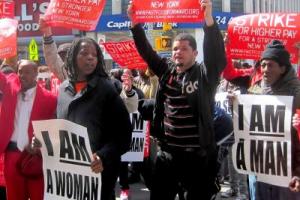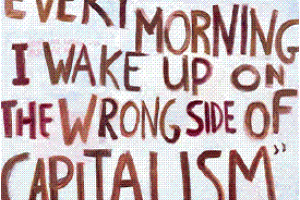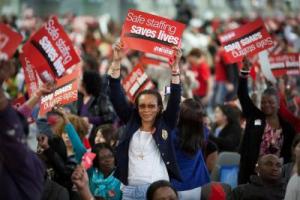BART Strike Illustrates Heated Debate Over Public-Sector Work Stoppages
San Jose Mercury News
 "Union struggles reflect on all jobs," said Jane Smith, 30, a data scientist from San Francisco. "Unions won the struggle for a 40-hour workweek, and we are all benefiting from that still. Unions also fight for higher wages, which translate to higher wages for all Americans." The BART strike is a symptom of "the income and wealth inequality that is plaguing our nation," she said. "I can't believe that people are missing the point."
"Union struggles reflect on all jobs," said Jane Smith, 30, a data scientist from San Francisco. "Unions won the struggle for a 40-hour workweek, and we are all benefiting from that still. Unions also fight for higher wages, which translate to higher wages for all Americans." The BART strike is a symptom of "the income and wealth inequality that is plaguing our nation," she said. "I can't believe that people are missing the point."





Spread the word